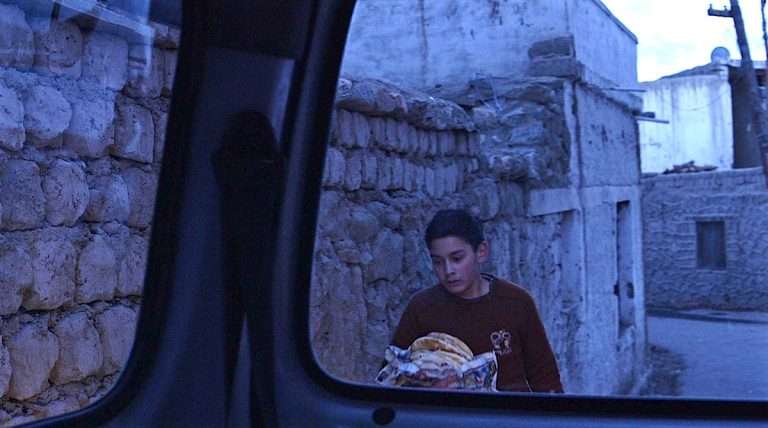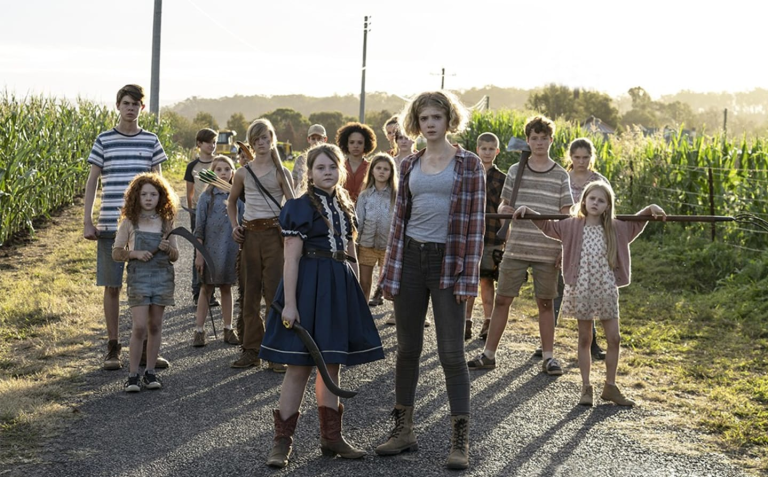American Cherry (2023) Movie Review: Beautifully-shot meditations on love and the price one has to pay for embodying the agonies and ecstasies of such a visceral emotion often make for compelling cinema. The act of loving is perenially a double-edged sword, as it is intrinsically tied to loss, grief, and an unmooring of the self.
Marcella Cytrynowicz’s American Cherry mimics the basic beats of a drama revolving around young love — the film centers around troubled teen Finn (Hart Denton), crippled by familial trauma, who finds some semblance of peace when he falls for Eliza (Sarah May Sommers), a girl he goes to school with. However, the film seems to misunderstand the heart of its story with its ever-fragmented tone and intentions, with a cast that belts out awkward, uneven performances that stifle whatever narrative potential might have existed on paper.
Finn, who seems to sport a calm exterior most times, seethes with an untameable brand of anger toward his parents, who are both flippant and controlling when it comes to their son. This anger spills over to other areas of his life, such as when he beats up a friend and intimidates a teacher after she rebukes him for tearing away pages from his school copy of Kafka’s “Metamorphosis.”
Soon after, Finn’s attention is diverted by Eliza, who treats him with kindness, and the two forge a bond while taking cute little walks around town and conversing about Vonnegut. As the two grow closer and fall in love, Finn’s affection morph into obsession, which manifests in a rather ugly manner towards the end.
There is no inherent issue with Finn and Eliza as two characters who are molded by the ever-shifting weight of their own trauma, making it difficult for both to navigate their own emotional landscape and life in general. The issue lies in the execution of these themes and ideas, as American Cherry falls pitifully short in the dialogue and screenplay department. The quintessential “mean girls” utter insults that mimic a caricature of the oft-used trope. Even seemingly serious moments are robbed of their value with awkward, cringe-inducing dialogue that is further stunted with horrendous line delivery.

Although Finn’s inner monologue (or narration, depending on how you perceive it) has more weight and meat to it in emotional and philosophical terms, the pendulum swings between profundity and pretentiousness while heavily leaning towards the latter. A mixture of these factors makes American Cherry bland and uninspired, which is unfortunate, as the narrative holds the potential to be deeply moving and introspective in better, more capable hands.
This truly is the case of squandered potential, as the core dynamic between Finn and Eliza should have been guided to bloom in grounded, fleshed-out ways, which would have made the final twist more believable or impactful, for that matter.
The film’s only triumph is its beauty, translated in lingering, languid shots of lush green meadows, sun-kissed interiors, and vibrant, intimate moments shared by the characters in American Cherry. Shot on a KODAK 35MM 500T, American Cherry shines when it comes to its visual language, which beautifully conveys glimmers of pain and melancholy in a small town with abandoned, forgotten corners.
Sadly, none of these strengths are corroborated by the script or the performances. These dual shortcomings greatly hamper what could have been a bittersweet saga about love born out of trauma and the ugliness that is often a byproduct of such an ordeal.
In essence, American Cherry remains a pretty fever dream from start to finish. But the film only manages to convey thoughtless superficiality — along with a beauty that is only skin deep.





![Free Solo [2018]: A New High](https://79468c92.delivery.rocketcdn.me/wp-content/uploads/2018/11/free-solo-National-Geographic-hof-1.jpg)


